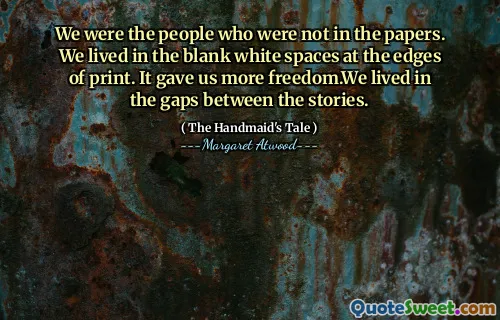I used to think of my body as an instrument, of pleasure, or a means of transportation, or an implement for the accomplishment of my will. I could make it run, push buttons, of one sort or another, make things happen. There were limits but my body was nevertheless lithe, single, solid, one with me. Now the flesh arranges it self differently.
In "The Handmaid's Tale," the narrator reflects on her past perception of her body as a versatile tool, capable of providing pleasure, facilitating movement, and executing her desires. She describes her body as an agile and unified entity, emphasizing a sense of control and agency over it. This view illustrates her past strength and autonomy, as she engaged with her body in various empowering ways.
However, this perception shifts as her body undergoes a transformation. The narrator notes that her flesh has changed and no longer operates in the same way. This change signifies a loss of agency and a shift in the relationship between her identity and her body, revealing how external circumstances can alter one's sense of self and diminish the former empowerment she experienced.






